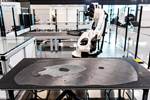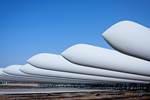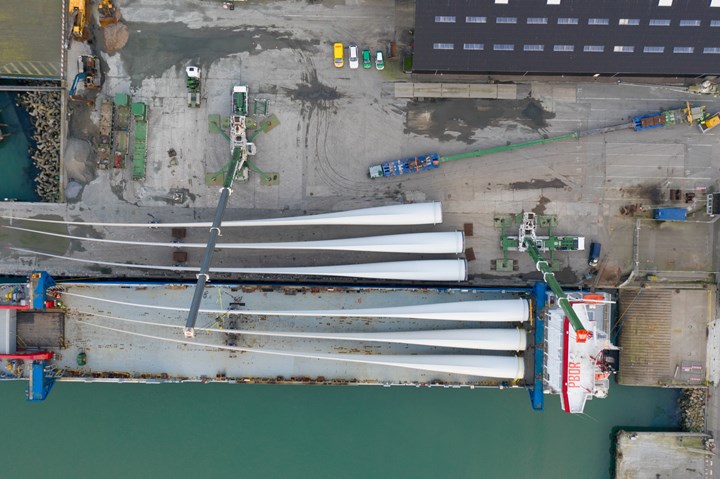Siemens Gamesa, Airborne collaborate on automation of wind turbine blades
Joint efforts combine years of expertise in the manufacture of wind turbine blades, composite processing and automation to scale up operations.
Siemens Gamesa Renewable Energy (SGRE, Zamudio, Spain) has contracted Airborne (The Hague, Netherlands) to engineer and supply an automated system for the manufacturing of composite offshore wind turbine blades.
By working together, both companies bring years of expertise in the manufacture of wind turbine blades, composite processing and automation to make this project a success. Airborne is a 100% composites-focused digital automation company with more than 25 years of experience in developing composite solutions for high-tech industries such as aerospace, automotive and renewable energy. Siemens Gamesa supplies wind turbines globally with what it says is unique process for manufacturing large offshore blades.
“We are excited to support Siemens Gamesa in this challenging project,” Marcus Kremers, CTO of Airborne, notes. “The scale of the operation is impressive and the requirements on layup rate are higher than we have ever seen. We are proud to bring our technologies and expertise to the table and jointly develop the right technology.”
Morten Westeraa, robotics expert of Siemens Gamesa agrees, finding potential and demand in the global wind turbine market. “It is essential that our production is kept at the highest level of efficiency, throughput and quality,” Westeraa adds. “We are confident that Airborne is a very skilled partner on this journey.”
Related Content
-
Novel composite technology replaces welded joints in tubular structures
The Tree Composites TC-joint replaces traditional welding in jacket foundations for offshore wind turbine generator applications, advancing the world’s quest for fast, sustainable energy deployment.
-
JEC World 2022, Part 3: Emphasizing emerging markets, thermoplastics and carbon fiber
CW editor-in-chief Jeff Sloan identifies companies exhibiting at JEC World 2022 that are advancing both materials and technologies for the growing AAM, hydrogen, automotive and sustainability markets.
-
Materials & Processes: Fibers for composites
The structural properties of composite materials are derived primarily from the fiber reinforcement. Fiber types, their manufacture, their uses and the end-market applications in which they find most use are described.









.jpg;maxWidth=300;quality=90)




